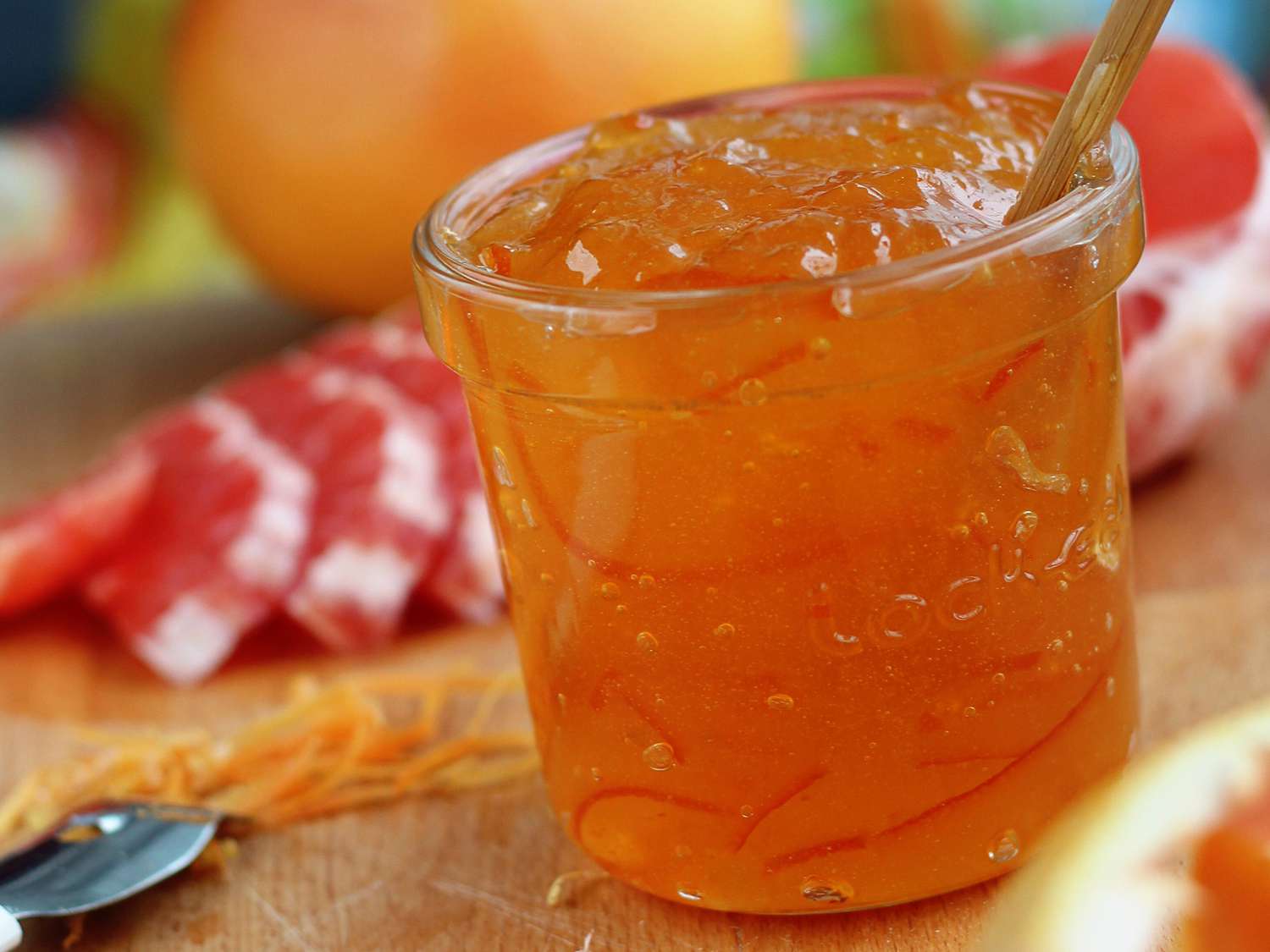Delightful Grapefruit Marmalade: A Step-by-Step Guide for Parents
Hey there, awesome parents! Are you ready to whip up some zesty fun in the kitchen with your little ones? Roll up your sleeves and join us as we dive into the bright and tangy world of grapefruit marmalade! Not only is it a scrumptious treat to spread on your morning toast, but making it together with your family can create the sweetest memories.
Marmalade making is an activity that combines learning and enjoyment. It can help your kids understand the process of preserving, the importance of measuring, and they’ll get to experience the gratifying feeling of making something from scratch. Plus, it’s a perfect opportunity to introduce them to new flavors and textures!
What You’ll Need to Make Grapefruit Marmalade
Before we start, let’s make sure you’ve got everything you need. Here’s a simple checklist:
- Grapefruits: Fresh and ripe for the best flavor
- Sugar: To sweeten the mix
- Water: It helps extract the pectin and cooks the fruit
- Lemon juice: A natural source of pectin to set the marmalade
- Salt: Just a pinch to enhance the flavor
And let’s not forget about the tools:
- Large Pot: For cooking the marmalade
- Wooden Spoon: A trusty tool for stirring
- Cutting Board and Knife: To prepare your fruits
- Jars with Lids: For storing your homemade marmalade
- Strainer or Cheesecloth: To remove any excess bits
Step 1: Preparing the Grapefruits
First things first, it’s time to prepare the grapefruits. This is something you can do with your kids, guiding them safely through the process.
- Rinse your grapefruits thoroughly under running water.
- Using a sharp knife, slice the grapefruits in half across the segments and then squeeze out the juice into a bowl.
- Now for the fun part! Get your hands in there and remove the remaining flesh and pith, but make sure to keep those precious peels. We’ll use them later!
- Slice the peels into thin strips or whatever size you prefer for your marmalade. Thin strips usually work better for a consistent texture.
Step 2: Cooking the Peel
The peel needs to be softened up before we turn it into the marmalade. This step is an excellent time to explain to your kids why the peel can be so tough and how cooking it helps.
- Place the peel strips in a large pot and cover them with water.
- Bring the pot to a boil, then reduce the heat and let it simmer for about 10 – 15 minutes, or until the peels are soft.
- Once softened, drain the water from the peels using a strainer.
A Little Bit on the Science of Marmalade Making
While you wait for the peels to soften, why not talk about the science behind marmalade? Explain how the heat breaks down the fibrous peel and how pectin—a natural substance found in citrus fruits—helps the marmalade set. It’s like a kitchen-based science experiment!

5 Things Every Parent Should Know When Preparing Grapefruit Marmalade
Welcome to the delightful journey of homemade grapefruit marmalade! Before we get our hands sticky, dear parents, there are a few key things you should know:
- Patience is Key: Marmalade-making is a beautiful process that shouldn’t be rushed. Ensure you have ample time set aside to enjoy this activity without feeling hurried.
- Involve Your Kids: From peeling to stirring, there are various safe ways for children to help. It’s a fantastic opportunity for them to learn about the chemistry of cooking and to take pride in their creations.
- Understand the Ingredients: Knowing the role each ingredient plays can help you explain the marmalade magic to your kiddos. For example, pectin from the citrus peel and lemon juice helps your marmalade set.
- Consistency Counts: The marmalade’s texture will depend on how you prepare your grapefruit peels. Whether you aim for fine or chunky shreds, keep the size consistent for even cooking.
- Safety First: Always supervise your children, especially during cutting and cooking. A safe kitchen is a happy kitchen, and ensuring everyone knows their roles will make the experience more enjoyable.
Let’s Get Started: The Joyful Grapefruit Marmalade Adventure
The excitement begins with preparation! Roll up those sleeves and let’s embark on this zesty adventure. Remember, the key is not just the delicious marmalade you’ll create, but also the smiles, learning moments, and teamwork that go into the process.
Gather Your Tools and Ingredients
Gather everything you need before starting. This ‘mise en place’ not only simplifies the process but also gives your little helpers a visualization of what goes into their food, fostering a deeper appreciation for homemade goodness.
Prepping Your Grapefruits
Ensure your grapefruits are washed and dried. With your supervision, older kids can help with slicing and juicing. Younger kids can pick up the peel strips and maybe even try their hand at separating the flesh with small, child-safe utensils.
The Alchemy of Softening Peels
Cooking the peels is a transformational step in marmalade making. Explain to your little chefs how boiling peels make them tender, turning them from bitter to the sweet carriers of marmalade delight. It’s not only a cooking lesson but a life lesson about transformation and patience.
The Sweetness and the Set
It’s time for sugar and lemon juice to enter the cauldron. Kids often marvel at how sugar dissolves and flavors merge. Here’s where the concoction thickens and your marmalade begins to take shape.
Stay Tuned: More Marmalade Marvels in Our Next Steps
Keep an eye out, dear kitchen companions! The journey continues as we pour our heart and creativity into each jar of homemade grapefruit marmalade. Ready for our upcoming steps? They’re just around the corner!
See more great Things to Do with Kids in New Zealand here. For more information see here
Disclaimer
The articles available via our website provide general information only and we strongly urge readers to exercise caution and conduct their own thorough research and fact-checking. The information presented should not be taken as absolute truth, and, to the maximum extent permitted by law, we will not be held liable for any inaccuracies or errors in the content. It is essential for individuals to independently verify and validate the information before making any decisions or taking any actions based on the articles.




